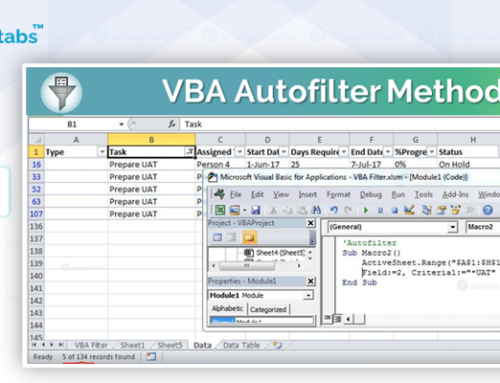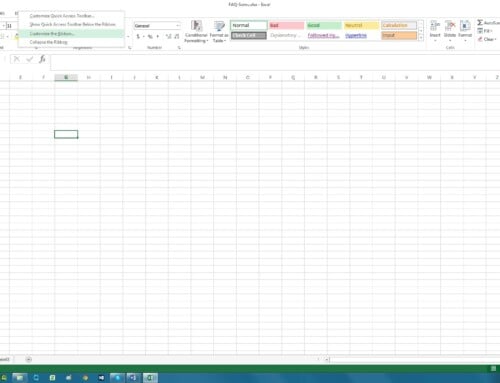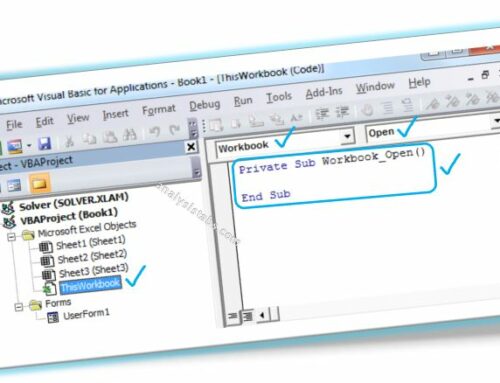VBA code to delete rows shift up example will help us to delete cell and shift up the cells (not entire row) in the excel worksheet. We can use Delete method of Rows to delete the rows shift up. In this example we will see how to shift up the range of cell in excel worksheet using VBA if cell contains 0. VBA code for deleting rows shift up macro should work for all the version of Microsoft Excel 2003, Excel 2007, Excel 2010, and Excel 2013.
VBA code to delete rows shift up
Here is the Example VBA syntax and Example VBA Macro to delete rows to shift up cells from excel worksheets. This will help you to know how to delete specific rows shift up from Excel workbook using VBA.
VBA Delete rows shift up: Syntax
Following is the VBA syntax and sample VBA code to delete rows to shift up cells from worksheet using VBA. We are using the Delete method of the Rows object of worksheet.
Range("Your Range”).Delete Shift:=xlUp
Here Range(“Your Range”) is your range to delete. And Shift:=xlUp tells excel to shift up the cells not to delete entire row.
: Delete rows shift up using VBA: Examples
The following VBA code is to delete rows based on cell value and shift up the cells from the excel worksheet. This code will delete and shift up the cells ( row 1 to 20) if cell value is 0 (zero).
Sub sbDelete_Rows_IF_Cell_Contains_Error()
Dim lRow As Long
Dim iCntr As Long
lRow = 20
For iCntr = lRow To 1 Step -1
If Cells(iCntr, 1)=0 Then
Range("A" & iCntr).Delete Shift:=xlUp End If
Next
End Sub
Instructions to run the VBA code to delete rows shift up
Please follow the below steps to execute the VBA code to delete rows shift up from Excel worksheets.
Step 1: Open any Excel workbook
Step 2: Press Alt+F11 – This will open the VBA Editor
Step 3: Insert a code module from then insert menu
Step 4: Copy the above code and paste in the code module which have inserted in the above step
Step 5: Enter some sample data in first column from row 1 to 20 and enter 0 values in some cells for testing purpose.
Step 6: Now press F5 to execute the code
Now you can observe that the cells are shifted up in the worksheet if the cell value is 0 (zero).
Explained VBA Code to Delete Rows based on cell value
‘Strating program and sub procedure to write VBA code to delete rows if cell contains 0 value
Sub sbDelete_Rows_IF_Cell_Cntains_Error_Value_C()
‘Declaring the variable lRow as long to store the last row number
Dim lRow As Long
‘Declaring the variable iCntr as long to use in the For loop
Dim iCntr As Long
‘Assigning the last row value to the variable lRow
lRow = 20
‘Using for loop
‘We are checking the each cell value if it cell is 0 (equals to zero value)
‘And deleting the row if true
For iCntr = lRow To 1 Step -1
Range(“A” & iCntr).Delete Shift:=xlUp End If
Rows(iCntr).Delete
End If
Next
‘Ending the macro to delete the rows shift up using VBA
End Sub
Here you can observe that we are looping through the cells from bottom to up. This is the best approach to check criteria and shift up the cells in worksheet.






Sir, Can we use offset command
Sub sbDelete_Rows_IF_Cell_Contains_Error()
Dim lRow As Long
Dim iCntr As Long
lRow = 20
Cells(iCntr, 1).activate
For iCntr = lRow To 1 Step -1
If Cells(iCntr, 1)=0 Then
Rows(iCtr).Delete
ActiveCell.offset(-1,0).select
Next
End Sub